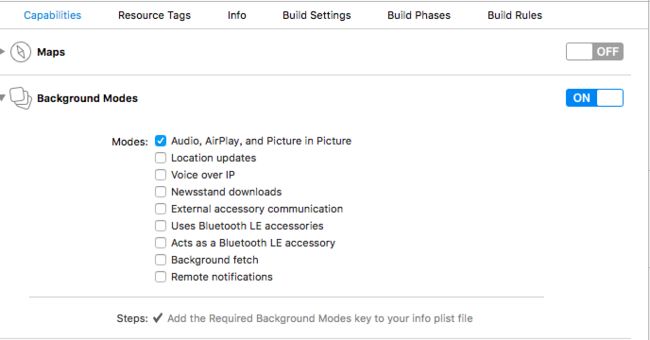- Pinia 实战指南:Vue 3 状态管理的高效之道
做人不能太高调
vue.js前端javascript
1.给我来个系统学习Pinia的大纲学习Pinia作为Vue.js的状态管理库,可以按照以下大纲来系统地进行学习:1.Pinia入门Pinia简介什么是Pinia?Pinia是Vue3的官方状态管理库,是对Vuex的继承和改进。它通过提供更简洁和灵活的API,使得在Vue应用中管理全局状态变得更加容易。Pinia是专为Vue3设计的,基于CompositionAPI,允许开发者以更加模块化和简洁的
- 【TypeScript学习笔记】TypeScript 核心知识点
Zaly.
Vue学习笔记typescript学习笔记
目录前言TypeScript核心概念基本类型与高级类型常用内置工具类型类型断言与类型守卫TypeScript在Vue3中的应用Vue3中TypeScript的作用范围Props和Emits的类型定义CompositionAPI中的类型支持前言TypeScript是微软开发的一个开源的编程语言,通过在JavaScript的基础上添加静态类型定义构建而成。TypeScript通过TypeScript编
- ai绘画生成软件哪个好?几款好用的AI绘画软件分享!
呼酱小宝箱
随着人工智能技术的不断发展,越来越多的AI绘画生成软件被开发出来。这些软件利用深度学习技术,可以将普通照片或图像转化成具备艺术效果的画作。那么,ai绘画生成软件哪个好?首先,让我们来看一下几个常见的AI绘画生成软件,它们分别是:1、DeepDreamDeepDream是由Google开发的一款AI绘画生成软件。它通过卷积神经网络对输入的图片进行处理,从而生成出具有艺术风格的画作。DeepDream
- 浅析Vue3(vue3笔记之进阶篇)
唆键盘的小前端
Javascript前端vue笔记vue.js前端前端框架javascriptwindows
本文是结合实践中和学习技术文章总结出来的笔记(个人使用),如有雷同纯属正常((✿◠‿◠))喜欢的话点个赞,谢谢!有问题欢迎指正!!前面已经讲了基本的Vue生命周期和入门知识,本篇重点介绍Vue3的一些进阶知识1.vue-router路由Vue的路由对比React真是舒服太多了,路由守卫不需要自己配置,还可以方便自己添加一些自定义逻辑,比如在beforeEach加载进度条之类的,这里以Hash路由为
- nestjs[一文学懂TypeORM在nestjs中的日常使用]
前提第一步:需要先了解nestjs中使用typeorm的引入和使用。参考官方:TypeORM集成第二步:熟悉typeorm文档了解与熟悉相关的api内容基础。学习步骤1.了解nestjs中引入typeorm并且配置引入相关库,参考前提-第一步在真实的项目中往往数据库信息都是放在配置文件中。其中Entities代表着数据表实体集,往往好多学习文档中都会开启自动扫描autoLoadEntities或者
- After Effects 教程,如何在 After Effects 中应用平铺效果?
Mac123123
欢迎观看AfterEffects中文版教程,小编带大家学习AfterEffects的基本工具和使用技巧,了解如何在AE中平铺效果。随着背景图层开始变得模糊,图标大约在1秒后开始显现。可以使用一种叫做「平铺」的效果,对图标进行动画处理。选择「图层1」,转到界面右侧的「效果和预设」面板,单击一次搜索字段,然后键入「tiler」,随即弹出扭曲滤镜「CCTiler」。单击该滤镜,把它拖入「合成」面板,放到
- 贯彻新发展理念,主动担当作为
姜娇
1月11日至1月14日,省部级主要领导干部学习贯彻党的十九届五中全会精神专题研讨班在中央党校举行。习近平总书记在开班式上发表重要讲话,深入分析了我国进入新发展阶段的理论依据、历史依据、现实依据,精辟阐述了深入贯彻新发展理念的新要求,深刻阐明了加快构建新发展格局的主攻方向,在全面建设社会主义现代化国家开启之年的关键节点,为“关键少数”上了关键一课。着眼两个大局,明确历史方位,锚定坐标再认识。习近平总
- 开学第一课之培训 ——所思,所学,所感
藝W
孔子曰:“学而不已,阖棺为止。”工作五年后,在孩子两岁的时,我重新步入学校攻读教育硕士,开启了我对教育事业的新认识。作为一线教师,我体会到仅靠学科知识是支撑不了永久的讲台;作为母亲,我也感受到新时代的家庭教育的重要。国家倡导“全民学习、终身学习”,长期坚守在一线的教师,怎能不学习,学习和阅读乃是我们的精神食粮。加入新网师源于朋友的邀约,我所工作的学校给年轻教师的培训机会很少,很高兴有这次机会能进入
- 2019-08-14
喜爱Fineyoga
今天学习刘润五分钟怎么提高你在每个朋友那里的情感账户的存款?第一,养成随手存款的好习惯;第二,警惕无意识的取款行为;第三,允许别人给你帮助听完这个课想起一句话,吃亏是福,其实吃亏也是情感存款!记得有一次和奶奶聊天,奶奶偷偷告诉我,我大伯以前人家都叫他大傻。我说大傻怎么还能当村干部!奶奶所谓的大伯傻就是他很实在,和人相处总是大伯吃亏。大伯喜欢抓鱼抓虾,别人抓的都是卖掉!大伯抓了就送人。谁家有事只要说
- 生成式 AI:从 “理解” 到 “创造” 的突破
田园Coder
人工智能科普人工智能科普
1.生成式AI的定义:让AI从“识别”走向“创造”1.1什么是生成式AI生成式AI是一类能自主生成新内容(文本、图像、音频、视频等)的人工智能技术。与传统“判别式AI”(如人脸识别、垃圾邮件过滤,专注于分类和判断)不同,生成式AI的核心是“创造”——它能基于学习的规律,生成与训练数据相似但全新的内容。例如,判别式AI能判断“这是一幅梵高的画”,而生成式AI能模仿梵高的风格创作一幅全新的油画;判别式
- 瑞•达利欧《原则》(三)
瑜宁Sarah
《原则》第一章6.回报恩惠1.原文:在我看来人生有三个阶段组成。在一个第一个阶段,我们依赖他人我们学习;在第二个阶段,其他人依赖我们,我们工作;在第三个阶段,当其他人不再依赖我们,我们也不在工作时,我们就可以自由的体验生活了。感受:看到这句话,我想到了我的大学老师,尽管已经毕业多年,仍然在为我们提供帮助。我很感谢我的老师们。而自己同时似乎处在第一和第二个阶段。希望自己能够更多地为他人提供帮助,走上
- 2020-4-30晨间日记
迷糊人设
今天是什么日子起床:10:30就寝:4:30天气:太阳心情:平常纪念日:无任务清单昨日完成的任务,最重要的三件事:改进:习惯养成:周目标·完成进度学习·信息·阅读昨天开始看了儒林外史,看惯现代文,真的文言文都不太懂了,前段时间本来想看山海经,想说还没看过这重来都只是听说山海经里的些许故事,未曾看过山海经,而且以为神话故事,应该蛮有意思的,可是看着通篇的文言文,突然觉得自己是外国人吧,看不懂呀,就放
- 探索图形知识梳理[3.29]
虫zi
【课题名称】人教版数学五年级下册第三单元——探索图形【学习时间】2022年3月29日上午8:30-9:10【学习平台】国家中小学网络云平台(https://ykt.eduyun.cn/)【学习准备】准备笔记本和草稿本,边观看边记录。适时控制播放,按老师指令完成相应的课上练习。【学习任务】(1)进一步认识和理解正方体的特征。(2)通过观察、列表、想象等活动,经历发现正方体涂色和位置的规律的全过程,获
- Python 基础(十四): 错误和异常
目录1错误2异常2.1内置异常2.2异常处理2.3抛出异常2.4自定义异常程序中的错误我们通常称为bug,工作中我们不仅需要改自己程序中的bug,还需要改别人程序中的bug,新项目有bug要改,老项目也有bug要改,可以说bug几乎贯穿一个程序员的职业生涯…我们通常将bug分为Error(错误)和Exception(异常),我们下面来具体学习下Python中的错误和异常。1错误错误通常是指程序中的
- 0106晨间日记
我是彩虹小姐
【今日完成】1.读《掌控习惯》,完成财富共创打卡2.英语学习记单词30个3.看完文案书籍《非常文案》4.看综艺节目,触及人性问题,不免有些感伤5.文案抄写5则6.写文7.看牙8.boss直聘沟通【今日心得】学习比较专注,不错【今日见识】生活就是一连串选择的集合文案的框架设计,顿时觉得万物相通,都有一个可普适的框架【需要改进】5秒停止瞎想【明日目标】1.阅读文案相关书籍2.英语打卡30个单词3.阅读
- T7D12 营业利润率与营业费用率
吴佩在天涯
1、营业利润率营业利润率说明的是公司是否有赚钱的真本事。昨天学习到毛利率。毛利=营业收入-营业成本毛利率=毛利/营业收入营业利润=毛利-营业费用营业利润率=营业利润/营业收入营业费用率=毛利率-营业利润率上面的四个公式可以看到,营业利润率更能准确的反映一个公司的赚钱的真本事。因为最后留下来的营业利润。才是公司最后真正到手的现金。营业成本的大小会极大的影响营业利润。2、片仔癀的营业利润率和营业费用率
- 日精进第156天
魏光付
敬爱的老师,智慧的班主任,亲爱的学兄们:大家好!我是枣庄庆源汽修魏光付。今天2019.02.07.是我的日精进行动第156天,我的预期寿命还有9976天。给大家分享我今天的进步,我们互相勉励,携手前行。每天进步一点点,距离成功便不远。1.比学习:读《营销的十六个关键词》学到∶市场营销中最本质、最核心的也是最关键的工作就是产品创新。创新的产品,一定要去匹配消费者现有或将有的需求,否则就是无意义的创新
- 鸿蒙实战开发(HarmonyOS )网络连接管理
鸿蒙NEXT开发实战往期必看文章:一分钟了解”纯血版!鸿蒙HarmonyOSNext应用开发!“非常详细的”鸿蒙HarmonyOSNext应用开发学习路线!(从零基础入门到精通)HarmonyOSNEXT应用开发案例实践总结合(持续更新......)HarmonyOSNEXT应用开发性能优化实践总结(持续更新......)简介网络连接管理提供管理网络一些基础能力,包括WiFi/蜂窝/Etherne
- 鸿蒙开发进阶(HarmonyOS )应用启动框架AppStartup应用实践案例
你我皆是牛马星人
鸿蒙开发HarmonyOSOpenHarmony1024程序员节harmonyos华为鸿蒙前端android鸿蒙系统
鸿蒙NEXT开发实战往期必看文章:一分钟了解”纯血版!鸿蒙HarmonyOSNext应用开发!“非常详细的”鸿蒙HarmonyOSNext应用开发学习路线!(从零基础入门到精通)HarmonyOSNEXT应用开发案例实践总结合(持续更新......)HarmonyOSNEXT应用开发性能优化实践总结(持续更新......)启动框架应用场景大型应用在启动过程中会加载大量的模块或SDK,各个模块或SD
- 随感
蔷薇花开我最爱
中原焦点团队--欧阳小兰焦点中26期分享235天20210726本周约练0次,来51观12咨31案例分析4BOX练习14读书1次总117次。今天白天扎扎实实做了一天的工作,晚上回来,读书会也不参加了,认认真真学习社工的中级证的法律与法规,一晚上几个小时做30道题目,然后重做错题,用时长,但扎实,基本上把第一章一些概念性的知识搞清楚了。白天空闲的时候,突然觉得说话很慢是一种特别舒服的感觉,要知道以前
- 2023-08-21
de5ea6d11ab2
易佳npdp学习笔记NPDP(NewProductDevelopmentProfessional)是产品经理国际资格认证。NPDP由美国产品开发与管理协会(PDMA)所发起,是国际公认的唯一的新产品开发专业认证,集理论、方法与实践为一体的全方位知识体系,为公司组织层级进行规划、决策、执行提供良好的方法体系支撑。经IBM采用后来被华为公司引入并取得巨大商业成功的IPD(IntegratedProdu
- Java String 正则表达式 设计模式 包装类 Object类 自动拆箱
额么么么么
java正则表达式设计模式
其它API(ApplicationProgramingInterface)应用程序接口(功能),我们java讲解最常用的一些功能。API作用:API表示的是功能,学习API可以快速进行编程开发。API设计初衷,设计者将复杂的业务逻辑,封装成方法,供调用者更好的使用。对于开发者而言,不需要关注功能的具体逻辑实现,只需要知道如何使用即可。Java提供了很多的包,有一些包需要导入,有一些不需要导入:1.
- 百日成长计划第52天
阅己阅人
百日成长计划2期组号11529:日期:2020.8.26学习第52天:今日感悟:孔子教导学生不要随意议论别人,“君子慎独”是儒家自我修养的方法,提倡“静坐常思己过,闲谈莫论人非”,反求诸己,“反省”是成本很低又能开发心中宝藏的提升心灵品质的途径。论人是非坏处多多,那么多的负能量容易污染自己的心灵。谨记。“以约失之者,鲜矣。”一个能约束自己的人犯错误很少。约束有外在约束(礼制、制度)和内在约束(良知
- Android-skin-support换肤原理详解
CurtainSystem
android
一.背景公司业务上需要用到换肤.为了不重复造轮子,并且快速实现需求,并且求稳,于是到Github上找了一个star数比较多的换肤框架-Android-skin-support(一款用心去做的Android换肤框架,极低的学习成本,极好的用户体验.一行代码就可以实现换肤,你值得拥有!!!).简单了解之后,可以快速上手,并且侵入性很低.作为一名合格的程序员,当然需要了解其背后的原理才能算是真正的灵活运
- 勇气读书会——《论语》打卡(第一百三十天)
于杰雄
这是我参加勇气读书会打卡第一百三十天我阅读的书籍:《论语》出发日期:2019.11.4/2019.11.24/2019.12.15/2020.01.10/2020.1.31/2020.2.22期待的收获:希望了解怎么解决教学问题一句标语:爱我所爱,尽我所能。小想法:相信明天会更好,我们会战胜困难,迈向更美好的未来。不要放弃每一天的学习,让自己充实起来,加油!勇气读书会,第六期,我已出发。孔子说:“
- 在职四战考研102day
MM加油女孩
已完成今日想做之事:政治内容理解;英语研词学习;专业课划重点并进行绘制思维导图;听书《我不要稳定的活着》反思:通过近几天的学习,感觉自己的进度还是很慢的,尤其是英语跟专业课这一块,它们是必不可少而且最耗时的科目,通过自己的思考,我再次对自己的计划作出调整:第一,晚上进行第二天内容的听课,截屏下来,尤其是政治、研词、真题讲解都利用晚上时间来听完,还有就是划专业课的笔记;第二,次日,上午进行一个英语真
- 2021-03-15成长
TCZ晨妈
成长幸福的家庭是相似的,不幸的家庭各有不同。妈妈在家庭关系里是重中之重,上有婆媳,下有亲子,中有夫妻。要怎么样才能获得幸福,过上自己想要的生活?要怎么样才能更好?那只有学习,也唯有学习,才能成长。在成长过程中,不仅提高经济地位、家庭地位,甚至话语权,更重要的是内心丰盈、精神富足,有睿智的头脑、坦荡的心胸;有足够的能力,将有些事放下,因为还有明天;不拿自己的情绪责怪别人,也不拿别人的错误惩罚自己;做
- 种子实践计划第93天
殷琴
目标:我可以轻松的实现在2019年1月份以后的每一个月的工资,将都是完完全全的属于我自己的,可以随意支配的了!动机:1我可以每个月安安心心的稳定的给妈妈和婆婆每人100元的孝顺金;感恩她们对子女的付出,希望可以让她们感受到更多的爱,和对金钱的安全感。2我有能力给孩子创造一个好的学习环境,给她一个快乐又充满智慧的童年!3自己也可以随心的购买自己想要的化妆品,衣服,等自己喜欢的东西,还可以存钱去上我一
- 我是家庭总动员
b66c6f1f6d41
收到消息,4月25日全国75个城市71场辟谷营开班,我动员了我爸和我二姐一起去参加这次辟谷营。二姐在江苏参加,我带爸爸在南宁参加,不过我们学习的内容都是一样的,因为上次学习了这些内容后收益匪浅,所以回家后和爸爸沟通了。图片发自App清明节回家扫墓,我和爸爸沟通一下,我说:“爸,你相信吸引力法则吗?”我爸一脸茫然,好吧,我知道我爸听不懂什么叫吸引力法则,于是给他解释了一通,然后还给他在优酷视频里能找
- Python训练营Day2
linaloos
python开发语言
学习内容:在完成第一天任务后,你已经具备执行简单Python代码的能力了,只要有人给你提供正确的代码,你都能够执行。但是离看懂上面AI提供的代码还有一段举例,你需要掌握一些基础内容。编程语言中为什么要使用变量Python中如何定义变量,变量的命名有什么规则编程语言中,逻辑控制的三大支柱是什么Python中数字类型和字符串类型有什么区别Python中还有哪些类型。有些问题需要思考如何进行增删改查,所
- [星球大战]阿纳金的背叛
comsci
本来杰迪圣殿的长老是不同意让阿纳金接受训练的.........
但是由于政治原因,长老会妥协了...这给邪恶的力量带来了机会
所以......现代的地球联邦接受了这个教训...绝对不让某些年轻人进入学院
- 看懂它,你就可以任性的玩耍了!
aijuans
JavaScript
javascript作为前端开发的标配技能,如果不掌握好它的三大特点:1.原型 2.作用域 3. 闭包 ,又怎么可以说你学好了这门语言呢?如果标配的技能都没有撑握好,怎么可以任性的玩耍呢?怎么验证自己学好了以上三个基本点呢,我找到一段不错的代码,稍加改动,如果能够读懂它,那么你就可以任性了。
function jClass(b
- Java常用工具包 Jodd
Kai_Ge
javajodd
Jodd 是一个开源的 Java 工具集, 包含一些实用的工具类和小型框架。简单,却很强大! 写道 Jodd = Tools + IoC + MVC + DB + AOP + TX + JSON + HTML < 1.5 Mb
Jodd 被分成众多模块,按需选择,其中
工具类模块有:
jodd-core &nb
- SpringMvc下载
120153216
springMVC
@RequestMapping(value = WebUrlConstant.DOWNLOAD)
public void download(HttpServletRequest request,HttpServletResponse response,String fileName) {
OutputStream os = null;
InputStream is = null;
- Python 标准异常总结
2002wmj
python
Python标准异常总结
AssertionError 断言语句(assert)失败 AttributeError 尝试访问未知的对象属性 EOFError 用户输入文件末尾标志EOF(Ctrl+d) FloatingPointError 浮点计算错误 GeneratorExit generator.close()方法被调用的时候 ImportError 导入模块失
- SQL函数返回临时表结构的数据用于查询
357029540
SQL Server
这两天在做一个查询的SQL,这个SQL的一个条件是通过游标实现另外两张表查询出一个多条数据,这些数据都是INT类型,然后用IN条件进行查询,并且查询这两张表需要通过外部传入参数才能查询出所需数据,于是想到了用SQL函数返回值,并且也这样做了,由于是返回多条数据,所以把查询出来的INT类型值都拼接为了字符串,这时就遇到问题了,在查询SQL中因为条件是INT值,SQL函数的CAST和CONVERST都
- java 时间格式化 | 比较大小| 时区 个人笔记
7454103
javaeclipsetomcatcMyEclipse
个人总结! 不当之处多多包含!
引用 1.0 如何设置 tomcat 的时区:
位置:(catalina.bat---JAVA_OPTS 下面加上)
set JAVA_OPT
- 时间获取Clander的用法
adminjun
Clander时间
/**
* 得到几天前的时间
* @param d
* @param day
* @return
*/
public static Date getDateBefore(Date d,int day){
Calend
- JVM初探与设置
aijuans
java
JVM是Java Virtual Machine(Java虚拟机)的缩写,JVM是一种用于计算设备的规范,它是一个虚构出来的计算机,是通过在实际的计算机上仿真模拟各种计算机功能来实现的。Java虚拟机包括一套字节码指令集、一组寄存器、一个栈、一个垃圾回收堆和一个存储方法域。 JVM屏蔽了与具体操作系统平台相关的信息,使Java程序只需生成在Java虚拟机上运行的目标代码(字节码),就可以在多种平台
- SQL中ON和WHERE的区别
avords
SQL中ON和WHERE的区别
数据库在通过连接两张或多张表来返回记录时,都会生成一张中间的临时表,然后再将这张临时表返回给用户。 www.2cto.com 在使用left jion时,on和where条件的区别如下: 1、 on条件是在生成临时表时使用的条件,它不管on中的条件是否为真,都会返回左边表中的记录。
- 说说自信
houxinyou
工作生活
自信的来源分为两种,一种是源于实力,一种源于头脑.实力是一个综合的评定,有自身的能力,能利用的资源等.比如我想去月亮上,要身体素质过硬,还要有飞船等等一系列的东西.这些都属于实力的一部分.而头脑不同,只要你头脑够简单就可以了!同样要上月亮上,你想,我一跳,1米,我多跳几下,跳个几年,应该就到了!什么?你说我会往下掉?你笨呀你!找个东西踩一下不就行了吗?
无论工作还
- WEBLOGIC事务超时设置
bijian1013
weblogicjta事务超时
系统中统计数据,由于调用统计过程,执行时间超过了weblogic设置的时间,提示如下错误:
统计数据出错!
原因:The transaction is no longer active - status: 'Rolling Back. [Reason=weblogic.transaction.internal
- 两年已过去,再看该如何快速融入新团队
bingyingao
java互联网融入架构新团队
偶得的空闲,翻到了两年前的帖子
该如何快速融入一个新团队,有所感触,就记下来,为下一个两年后的今天做参考。
时隔两年半之后的今天,再来看当初的这个博客,别有一番滋味。而我已经于今年三月份离开了当初所在的团队,加入另外的一个项目组,2011年的这篇博客之后的时光,我很好的融入了那个团队,而直到现在和同事们关系都特别好。大家在短短一年半的时间离一起经历了一
- 【Spark七十七】Spark分析Nginx和Apache的access.log
bit1129
apache
Spark分析Nginx和Apache的access.log,第一个问题是要对Nginx和Apache的access.log文件进行按行解析,按行解析就的方法是正则表达式:
Nginx的access.log解析正则表达式
val PATTERN = """([^ ]*) ([^ ]*) ([^ ]*) (\\[.*\\]) (\&q
- Erlang patch
bookjovi
erlang
Totally five patchs committed to erlang otp, just small patchs.
IMO, erlang really is a interesting programming language, I really like its concurrency feature.
but the functional programming style
- log4j日志路径中加入日期
bro_feng
javalog4j
要用log4j使用记录日志,日志路径有每日的日期,文件大小5M新增文件。
实现方式
log4j:
<appender name="serviceLog"
class="org.apache.log4j.RollingFileAppender">
<param name="Encoding" v
- 读《研磨设计模式》-代码笔记-桥接模式
bylijinnan
java设计模式
声明: 本文只为方便我个人查阅和理解,详细的分析以及源代码请移步 原作者的博客http://chjavach.iteye.com/
/**
* 个人觉得关于桥接模式的例子,蜡笔和毛笔这个例子是最贴切的:http://www.cnblogs.com/zhenyulu/articles/67016.html
* 笔和颜色是可分离的,蜡笔把两者耦合在一起了:一支蜡笔只有一种
- windows7下SVN和Eclipse插件安装
chenyu19891124
eclipse插件
今天花了一天时间弄SVN和Eclipse插件的安装,今天弄好了。svn插件和Eclipse整合有两种方式,一种是直接下载插件包,二种是通过Eclipse在线更新。由于之前Eclipse版本和svn插件版本有差别,始终是没装上。最后在网上找到了适合的版本。所用的环境系统:windows7JDK:1.7svn插件包版本:1.8.16Eclipse:3.7.2工具下载地址:Eclipse下在地址:htt
- [转帖]工作流引擎设计思路
comsci
设计模式工作应用服务器workflow企业应用
作为国内的同行,我非常希望在流程设计方面和大家交流,刚发现篇好文(那么好的文章,现在才发现,可惜),关于流程设计的一些原理,个人觉得本文站得高,看得远,比俺的文章有深度,转载如下
=================================================================================
自开博以来不断有朋友来探讨工作流引擎该如何
- Linux 查看内存,CPU及硬盘大小的方法
daizj
linuxcpu内存硬盘大小
一、查看CPU信息的命令
[root@R4 ~]# cat /proc/cpuinfo |grep "model name" && cat /proc/cpuinfo |grep "physical id"
model name : Intel(R) Xeon(R) CPU X5450 @ 3.00GHz
model name :
- linux 踢出在线用户
dongwei_6688
linux
两个步骤:
1.用w命令找到要踢出的用户,比如下面:
[root@localhost ~]# w
18:16:55 up 39 days, 8:27, 3 users, load average: 0.03, 0.03, 0.00
USER TTY FROM LOGIN@ IDLE JCPU PCPU WHAT
- 放手吧,就像不曾拥有过一样
dcj3sjt126com
内容提要:
静悠悠编著的《放手吧就像不曾拥有过一样》集结“全球华语世界最舒缓心灵”的精华故事,触碰生命最深层次的感动,献给全世界亿万读者。《放手吧就像不曾拥有过一样》的作者衷心地祝愿每一位读者都给自己一个重新出发的理由,将那些令你痛苦的、扛起的、背负的,一并都放下吧!把憔悴的面容换做一种清淡的微笑,把沉重的步伐调节成春天五线谱上的音符,让自己踏着轻快的节奏,在人生的海面上悠然漂荡,享受宁静与
- php二进制安全的含义
dcj3sjt126com
PHP
PHP里,有string的概念。
string里,每个字符的大小为byte(与PHP相比,Java的每个字符为Character,是UTF8字符,C语言的每个字符可以在编译时选择)。
byte里,有ASCII代码的字符,例如ABC,123,abc,也有一些特殊字符,例如回车,退格之类的。
特殊字符很多是不能显示的。或者说,他们的显示方式没有标准,例如编码65到哪儿都是字母A,编码97到哪儿都是字符
- Linux下禁用T440s,X240的一体化触摸板(touchpad)
gashero
linuxThinkPad触摸板
自打1月买了Thinkpad T440s就一直很火大,其中最让人恼火的莫过于触摸板。
Thinkpad的经典就包括用了小红点(TrackPoint)。但是小红点只能定位,还是需要鼠标的左右键的。但是自打T440s等开始启用了一体化触摸板,不再有实体的按键了。问题是要是好用也行。
实际使用中,触摸板一堆问题,比如定位有抖动,以及按键时会有飘逸。这就导致了单击经常就
- graph_dfs
hcx2013
Graph
package edu.xidian.graph;
class MyStack {
private final int SIZE = 20;
private int[] st;
private int top;
public MyStack() {
st = new int[SIZE];
top = -1;
}
public void push(i
- Spring4.1新特性——Spring核心部分及其他
jinnianshilongnian
spring 4.1
目录
Spring4.1新特性——综述
Spring4.1新特性——Spring核心部分及其他
Spring4.1新特性——Spring缓存框架增强
Spring4.1新特性——异步调用和事件机制的异常处理
Spring4.1新特性——数据库集成测试脚本初始化
Spring4.1新特性——Spring MVC增强
Spring4.1新特性——页面自动化测试框架Spring MVC T
- 配置HiveServer2的安全策略之自定义用户名密码验证
liyonghui160com
具体从网上看
http://doc.mapr.com/display/MapR/Using+HiveServer2#UsingHiveServer2-ConfiguringCustomAuthentication
LDAP Authentication using OpenLDAP
Setting
- 一位30多的程序员生涯经验总结
pda158
编程工作生活咨询
1.客户在接触到产品之后,才会真正明白自己的需求。
这是我在我的第一份工作上面学来的。只有当我们给客户展示产品的时候,他们才会意识到哪些是必须的。给出一个功能性原型设计远远比一张长长的文字表格要好。 2.只要有充足的时间,所有安全防御系统都将失败。
安全防御现如今是全世界都在关注的大课题、大挑战。我们必须时时刻刻积极完善它,因为黑客只要有一次成功,就可以彻底打败你。 3.
- 分布式web服务架构的演变
自由的奴隶
linuxWeb应用服务器互联网
最开始,由于某些想法,于是在互联网上搭建了一个网站,这个时候甚至有可能主机都是租借的,但由于这篇文章我们只关注架构的演变历程,因此就假设这个时候已经是托管了一台主机,并且有一定的带宽了,这个时候由于网站具备了一定的特色,吸引了部分人访问,逐渐你发现系统的压力越来越高,响应速度越来越慢,而这个时候比较明显的是数据库和应用互相影响,应用出问题了,数据库也很容易出现问题,而数据库出问题的时候,应用也容易
- 初探Druid连接池之二——慢SQL日志记录
xingsan_zhang
日志连接池druid慢SQL
由于工作原因,这里先不说连接数据库部分的配置,后面会补上,直接进入慢SQL日志记录。
1.applicationContext.xml中增加如下配置:
<bean abstract="true" id="mysql_database" class="com.alibaba.druid.pool.DruidDataSourc
